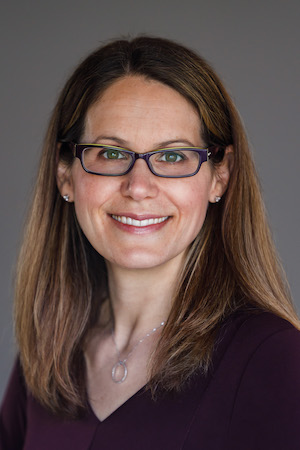Adventures in anisotropy at the base of the mantle: New constraints on deep mantle flow

Keynote Lecture Series
Speaker:
Maureen Long
Lecture Date and Time (US Mountain Time):
Thursday, September 17, 2020 - 02:00
Lecture Link:
Abstract:
Observations of seismic anisotropy, or the directional dependence of seismic wavespeeds, provide one some of the most direct constraints on the pattern of flow in the Earth's mantle. In particular, as our understanding of crystallographic preferred orientation (CPO) of olivine aggregates under a range of deformation conditions has improved, our ability to exploit observations of upper mantle anisotropy has led to fundamental discoveries about the patterns of flow in the upper mantle and the drivers of that flow. It has been challenging to develop a similar framework for understanding flow in the lowermost mantle, even though there is convincing observational evidence for seismic anisotropy at these depths. New approaches to the observation and modeling of lowermost mantle anisotropy, in combination with constraints from mineral physics, are progressing towards interpretive frameworks that allow for the discrimination of different mantle flow geometries in different regions of D". In particular, observational strategies that involve the use of multiple types of body wave phases sampled over a range of propagation azimuths enable detailed forward modeling approaches that can discriminate between different mechanisms for D" anisotropy (e.g., CPO of post-perovskite, bridgmanite, or ferropericlase, or shape preferred orientation of partial melt) and identify plausible anisotropic orientations. Ongoing improvements in seismic observational strategies, experimental and computational mineral physics, and geodynamic modeling approaches are leading to new avenues for understanding flow in the deep mantle through the study of seismic anisotropy.
Speaker Bio:
"I’ve been at Yale since 2009, and I teach courses on seismology, natural disasters, and forensic geosciences. I serve as the Director of Graduate Studies for the Earth and Planetary Sciences department, and I am particularly interested in cultivating diversity, inclusion, and equity within our Ph.D. program. I’m committed to public education and outreach, and run the Field Experiences for Science Teachers (FEST) program at Yale, which provides one-week field experiences for Connecticut-based high school science teachers."
Education
B.S. Geology, Rensselaer Polytechnic Institute, May 2000
Ph.D. Geophysics, Massachusetts Institute of Technology, June 2006
Postdoc, Department of Terrestrial Magnetism (now Earth and Planets Laboratory), Carnegie Institution for Science, 2006-2008
All the information above was copied from the speaker's website.
